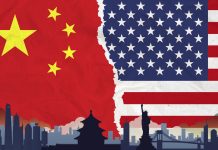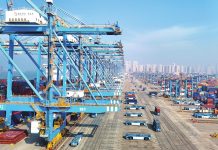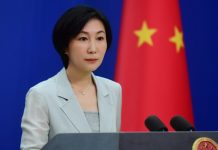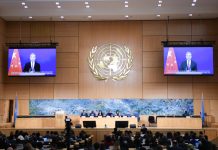BEIJING: As Chinese people across the country celebrate the remarkable achievements of the Communist Party of China (CPC) over the past century and look forward to another glorious century on Thursday, a sobering reminder of the Party’s original mission has also become omnipresent amid a joyful festive atmosphere.
“Remaining true to our original aspiration and keeping our mission firmly in mind.” That’s a maxim hard to miss for lines of visitors at the site of the first National Congress of the CPC in Shanghai, the place where the Party started its journey in 1921 – or anywhere else around the country from every museum to historical site to every government and Party office building.
The maxim provides the answers to two questions: Why did Chinese people choose the CPC to lead their country in the first place? How can the CPC withstand the test of history and keep leading the country toward the great rejuvenation of the Chinese nation?
Xi Jinping, general secretary of the CPC Central Committee, said this maxim first in 2017 when he delivered the report of the 19th National Congress of the CPC. “The original aspiration and the mission of Chinese Communists is to seek happiness for the Chinese people and rejuvenation for the Chinese nation,” he said.Legitimacy from the people
The Western narrative about China or the CPC has always doubted the legitimacy of the Party to govern a country with 1.4 billion people because the Western liberal political idea believes China’s political system does not have a Western standard of “democracy.” It supposes the Chinese political system is unable to effectively respond to the demands of its people. Without a Western-style one-person-one-vote election and multiparty system, how can the CPC ensure its qualification to represent its people?
In fact, China did try almost every kind of Western political system long ago. In the era of the late Qing Dynasty (1644-1911), in order to save the poor and weak country from endless domestic chaos and humiliating failures against invasions launched by foreign imperialists and colonialists, Chinese political elites and revolutionary pioneers tried their best to find a path.
Many Western political ideas were introduced to China at that time, including liberalism, conservatism, anarchism and fascism, long before the October Revolution in 1917 which brought Marxism to China.
“Our ancestors tried everything they could find from the outside world,” said Zhang Weiwei, director of the China Institute of Fudan University in Shanghai, noting that “from a constitutional monarchy to a multiparty system, from a parliamentary system to a presidential system, they tried them all, but unfortunately, none of these could effectively help China to protect itself and end the chaos.”
More importantly, none of these choices could represent the vast majority of Chinese people.
Why did Marxism or socialism eventually become the final choice? When the CPC was established in July 1921, it had around 50 Party members represented by 13 deputies, and at the very beginning, it was not a widely accepted idea in China as it was too different from the traditional culture of the country and it was not localized. In other words, it had not yet been integrated with Chinese characteristics.
But the CPC had one unique advantage – it represents the interests of proletarians. And thanks to the creative exploration and innovations made by the first-generation CPC leadership with Mao Zedong at its core, the CPC included peasants in its leading force for China’s revolution.
From the 1920s to the 40s, about 80-90 percent of the population in most regions of China were peasants. Uneven urbanization led to an enormous number of impoverished people in urban areas as well. Adding to the endless wars and famines, millions of people struggled for their lives every day.
Mao’s innovative contribution in revolutionary theory was for the first time the CPC localized or “Sinicized” Marxism to serve the interests of the Chinese people, but this went against the orthodoxy of classic Marxist theory upheld by the Communist International and the Soviet Union – that the revolution should start from major cities and be led by the urban working class.
Eventually, the CPC successfully carried out its reform and opening-up policies, which delivered an economic miracle for the Chinese nation and its people.
The CPC was not just a party of poor people who were the same as peasant uprising forces in Chinese history, as its leaders were mostly intellectuals in China’s most developed urban areas at that time including Shanghai and Peking, with overseas education backgrounds.
Jin Yinan, a professor at the PLA’s National Defense University, said during a recent speech that “the CPC was receiving the most advanced thoughts in the most developed cities, and gathering the bravest warriors in the least developed villages.”
The CPC used these advanced thoughts to arm its warriors from rural areas, making its army a modern force with unswerving faith to fight for the liberation of the Chinese people, rather than their own selfish interests like the peasant uprising forces in Chinese history.






